Fiori di ZuccaRecipes and Memories from My Family's Kitchen Table
Mixing inspiring recipes and stories from her family’s incredible history, this evocative and unforgettable book from Valentina Harris spans the culinary regions of Italy, France, Belgium, England, Russia, China, Turkey and the US.
Valentina has a wonderful story to tell. Her grandfather, Count Carlo Sforza, who became the Italian Ambassador, was posted to Constantinople, Peking (at the end of Imperialist China), Corfu, Rome and Paris. In 1922 he resigned in order to return to Italy to fight facism. The family suffered brutal harassment, forcing him to flee – going back to Peking and on to the US – and the family to move to Brussels, then on to France, the UK, Canada and the US for most of WW2. Finally the family returned to Italy after the war. This is where Valentina’s mother met her English husband – Valentina’s father. Having caused a scandal with their marriage, her mother and father were banished to Tuscany, where Valentina spent most of her childhood. Against a backdrop of different cultures and cuisines, Valentina narrates beautiful and powerful stories – along with her discovery of pure, intense happiness from cooking.
Gorgeous recipes guide you through Valentina’s history. You’ll find the Braised Cinnamon Duck with Caramelised Pears that Valentina’s mother created in memory of their Russian ancestors and the Belgrade Almond Cake that Valentina used to eat with her cousins from Montenegro, as well as the Seafood Risotto that Beppino, their cook, taught her in Italy and the Nougat Semifreddo that she used to eat with her father on the via Veneto in Rome. Here are 85 recipes that have been handed down through the generations or inspired by family stories and experiences. This is the culmination of Valentina’s career and the book of her heart and soul.
http://www.valentinaharris.com/Valentina.aspx
Valentina Harris’ maternal grandfather was Carlo Sforza, a scion of the House of Sforza, one of Italy’s ruling families during the Renaissance. Carlo was an ambassador for Italy before the war, but ran afoul of Mussolini due to his republican leanings and was forced to flee to America. Valentina’s mother, Fiammetta Sforza, was born in Peking and grew up in Tuscany. Her father was an Anglo-Dutch army officer who fell in love with Fiammetta at the end of the war. Their torrid romance is recounted in Harris’ latest book, Fiori di Zucca: Recipes and Memories from My Family’s Kitchen, which is part family memoir, part cookbook. The stories and recipes in the book come from around the globe as Harris traces the movements of her glamorous, peripatetic family.
Harris has written authoritatively on many aspects of Italian food and has appeared on TV regularly since her first BBC series, ‘Italian Regional Cookery’. She is the author of more than 40 internationally successful titles. Dividing her time between London and Italy, she works as a consultant, teaches at La Cucina Caldesi in London, runs the Chef’s Theatre at the Real Food Festival in London and holds cookery courses in different parts of Italy. She is the President of the UK Chapter of Les Dames d’Escoffier International.
An extraordinary family history has allowed Valentina Harris to amass an incredible collection of family recipes. These she has woven these together in the telling of her family history.
Books About Food (BAF): Can you tell us a little about your family?
Valentina: My Grandparents first posting was in China, which is where my mother was born. After that they returned to Europe. Of course, World War 1 had broken out … it was 1914 … so they were stationed for three years on the island of Corfu, which is where my uncle was born. Then after that they returned to Italy.
My grandfather was very much in opposition to Mussolini and eventually was sent into exile. They ended up in the United States.
My dad, who I always thought, until I started to research this book, was at least partly English, in fact was the product of an Irish lady called Rose Daniels. His father’s name was Gerard Schoetel, who was from Delft.
She eloped out of her bedroom window into his arms, and they disappeared off together. I’ve never heard, nor have any member of my family, ever heard from any member of the Daniel family since.
They had nine children, of whom only four survived in the end. One of them was my dad, obviously, who met and married my mum. The other one that I remember particularly and is mentioned a great deal in the book … in fact, there’s a whole chapter devoted to her … was Leonora, who was my father’s adored sister, who set up, at the behest of my father, a primary school in Rome called the Junior English School, which is where I went to school. My aunt, who was a tremendous networker, gradually swelled the numbers of the school. We had people like … we had all the Getty children at school with us. We had all the Anthony Quinn’s tribe of children at school with us. It was the most extraordinary place to be educated.
When my parents were married, they created an amazing scandal, because of course it was just unthinkable for a child in polite society, that an aristocrat like my mother, the daughter of a prominent politician such as my grandfather, Count Carlo Sforza, should marry a penniless, divorced, Protestant Englishman, but marry they did. They were given as a wedding present by my grandfather this incredible house called La Tambura, which is also very much mentioned in the book, where really my great passion and love for food and cooking began, thanks to a man called Beppino, who was one of the many displaced Italians living amongst the ruins of the bombed out house when my parents took it over. He really became my absolute mentor. From a very, very young age he involved me and taught me about food and cooking. That’s where it all started.
BAF: Can you talk a little about Beppino? That’s quite a story.
Valentina: An amazing man. A really amazing, incredible person. Much missed.
BAF: What was his background?
Valentina: He, before the war, had been the risotto chef at the restaurant called Savini, which is still there in the Galleria in Milan. His great dish was risotto. Here in the UK amongst my peers, I am known as the risotto queen, because that’s the legacy he left me. There isn’t very much I don’t know about the subject of risotto and risotto rice and how to make it. That’s the first thing he taught me to cook. It is in fact my earliest childhood memory, is learning to make risotto with Beppino.
BAF: You learned to cook in somewhat of a nontraditional way, where most people learn from their mother or occasionally father, but you learned from somebody not related.
Valentina: I learned with Beppino. My mother was an amazing gourmand and a gourmet. She loved food and talked about food constantly and was a very, very good cook herself. One of the oddities of it all is that she’d learned to bake. I think one of the things that one does early on in one’s childhood with one’s mom is one bakes … bakes cakes and bakes cookies and learns how to make cupcakes and all that sort of thing. Of course, she had learned all her baking skills in the States and had returned from the States many years previously with these fantastic American baking books. All the cakes that I first learned to make were devil’s food cake, angel cake and pound cake and all these very American cakes.
I was making them when I was seven with my mom. I learned about frosting as opposed to icing. We would make chiffon pies and all that sort of thing. It was tremendous really that there was a mix of all that American stuff in amongst everything else I was learning about. The bug bit me, because by the time I was eight years old I’d taken over the family sandpit and created my very first one-table restaurant, where I made mud pies and leaf salads and pretend food, which I would serve on my single plate, using a single fork, knife and glass. Then my parents, with tremendous insight, I think these days they’d probably get arrested if they did it, but they were very brave, when I was 10 they gave me some camping gas stoves and a box of matches. After that I had heat, and then every bit of my pocket money went on food, on buying food and ingredients. I just proceeded to cook, which is my great love, really, is to cook for people I care about and for people who are appreciative of good food.
BAF: Is it because these are people who had survived the war, so they appreciated life more and they wanted to connect with friends who’d also survived, and it was a celebration of life?
Valentina: Oh, tremendously so. Yes, yes, tremendously so. Yes, there was a great joie-de-vivre. I’m sure part of that was because they’d all had … as I tell in the book, in some of the stories, that there’d been a very grim time before, and this was a fantastic sort of celebration, really. I was very lucky to be a part of all of that. All the protagonists of that, of my upbringing, are all somehow or other connected with food in some way or another. The important people are, anyway. The memories are triggered by food and the food triggers the memories, if you know what I mean.
The house, La Tambura, which is referred to such a lot in the book, it was the kind of kitchen where … You know, my parents were so crazy about each other and so passionate about having met each other that there seemed to just be a constant celebration around the table of conversation and food and fun. There was this tremendous feeling around the table. I grew up thinking everybody lived like that. I thought it was completely normal that there should be 30 people to lunch and 40 people to dinner and a picnic for 60 tomorrow, and barbecues at the drop at the hat, and that we grew all our own vegetables.
Thanks to Beppino, we had a fantastic market garden where we grew all our own vegetables. We kept chickens and rabbits and pigs. Beppino even had a still where he made grappa. We made wine, we made oil, we baked bread. There was a beach in front of the house. We would go out and drop the nets and see what we’d caught and decide what we were going to make fish-wise out of that. I really did think that everybody in the world treated food and enjoyed food in the same way. The kitchen was always buzzing with activity. In other households, sometimes the children are chased off when they pop into the kitchen. This kitchen was the sort of place where, whatever age you were, whoever you were, if you popped in somebody would say, “Oh, great! Can you come and peel these potatoes? Can you top and tail these beans? Can you chop this up? Can you squeeze these lemons? Can you help?”
BAF: They would find a job for you?
Valentina: Yes, exactly. It was completely inclusive. Really, that’s where it all began.
BAF: Is it because these are people who had survived the war, so they appreciated life more and they wanted to connect with friends who’d also survived, and it was a celebration of life?
Valentina: Oh, tremendously so. Yes, yes, tremendously so. Yes, there was a great joie-de-vivre. I’m sure part of that was because they’d all had … as I tell in the book, in some of the stories, that there’d been a very grim time before, and this was a fantastic sort of celebration, really. I was very lucky to be a part of all of that. All the protagonists of that, of my upbringing, are all somehow or other connected with food in some way or another. The important people are, anyway. The memories are triggered by food and the food triggers the memories, if you know what I mean.
BAF : How did you go about collecting all these recipes?
Valentina: I don’t know why it is I have somehow become the custodian of all the family diaries and papers and things. I have a garage full of stuff, and handwritten recipes, recipes cut out of ancient magazines, recipes copied out of books, diaries, journals all kinds of things. I just pieced it all together, partly out of my own memory. Because obviously, many of the recipes I remember and others from all this stuff that I have. I could write another three volumes quite easily. There is definitely lots more to tell. I’ve learnt many more recipes to go with them.
BAF: Any new discoveries? You mentioned about your father’s secret identity, for lack of a better phrase.
Valentina: Yes. I started to … apparently, one of the chapters is about my mysterious Russian ancestress. Nobody really knows what her surname was or anything, but it was story that Grandmother used to like … my nana used to like to tell this rather wild and louche Russian ancestress and how much she enjoyed food and drink and the company of men. That brought me to try and find out a bit more about the kind of food that they might have eaten and enjoyed, based purely on the memories that I have of what my grandmother told me. There are a few Russian … or at least, Russian-inspired … recipes scattered in there.
Then there is the whole … all the recipes connected to the period that my maternal grandparents were both in Turkey, so there’s a Turkish flavor that goes on there. Obviously the English recipes are connected to that famous tea that was had at Claridge’s, and so on. As I say, they’re very much sort of [inaudible 00:15:11] I’ve tried to weave them into the places and the atmosphere of where the stories are based.
BAF: Were you able to reconnect? Did you discover any recipes that you hadn’t had in a while?
Valentina: Oh, absolutely. Absolutely. Yes, indeed. I found all kinds of extraordinary things, things I’d heard people talk about, but that I had never actually eaten, or things which I’d eaten elsewhere, which I then realized that they were also part of my grandmother’s or my cousin’s or my grandmother’s repertoire. Yes, it was quite extraordinary what came tumbling out once I started digging about.
I think it is totally transporting. The difficulty is, of course, when you’re disappointed because you think that … somebody else cooks you something which you think is one of those dishes that is for you linked to memories. Then it’s not quite right, then it’s just a bit of a disappointment, you know.
Sometimes it could be something completely simple, like a perfect slice of the best bread just drizzled with fresh, newly pressed olive oil, and I’m right back there.
BAF: What happened to Beppino?
Valentina: Yes, Beppino passed away about a year ago, very quietly and unobtrusively more or less like he lived.
BAF: What did he do? Did he continue to stay with your family?
Valentina: Yes, he just carried on doing what he’d always done, absolutely, even after my parents died and the house was sold. My mother was absolutely determined that they should keep their corner of the garden and their little house on it no matter what. When the house sold, that piece of land and their house was cordoned off. There Beppino and his family continued to live. I think, yes, his family is still there now, quite elderly now, visited by her children and her grandchildren. I used to visit him right up until the time that he died, and yes, it was all very much the same as ever really.
BAF: You seem to have lots going on. What’s next after this wonderful book?
Valentina: One of things that I do is I organize the cookery theater side of food festivals on London’s South Bank. I have one each month now from September. I have one in September, one in October, one in November and one in December. I’m thinking about what I’m going to write next, obviously. I’d very like to write the sequel to Fiori Di Zucca. I’d like to write about what happened when I came to the UK, and carry on the story from there, or just delve a bit more deeply and go a bit wider into more of the family history. That’s the sort of decision I need to make one way or the other. Yes, that’s what’s on the cards for me, looking to the future at the moment.
PARMESAN & BUTTER RISOTTO
Serves 6
Preparation time: 10 minutes, plus 4 minutes resting
Cooking time: 35 to 40 minutes
Long before I discovered a historical link between risotto and my ancestor Ludovico Sforza, I fell in love with this simple dish. This recipe is ideal for beginners because it is easy to observe the changes in appearance and texture of the rice grains during the whole cooking process. To make a successful risotto, the pan used should be deep enough so the liquid does not evaporate too quickly, be heavy-based to allow the cooking process to be relatively slow and must have a lid that fits tightly. You can also add all sorts of other ingredients to this basic recipe, such as herbs, cooked pancetta, chicken or whatever takes your fancy.
5 tablespoons unsalted butter 1 onion, finely chopped
2½ cups risotto rice, preferably vialone nano
6½ cups good-quality chicken, meat or vegetable stock, hot
1 cup freshly grated Parmesan cheese kosher salt and freshly ground
black pepper
Heat half the butter in a deep, heavy-based saucepan over very low heat. Add the onion and fry 10 minutes, or until the onion is soft but not colored. Increase the heat slightly to medium-low, add the rice and toast the grains 4 to 8 minutes, stirring, until they are opaque but not colored.
Add a ladleful of the hot stock and stir it in, letting the rice hiss and tremble as it absorbs the liquid. Continue adding the stock 2 ladlefuls at a time, stirring continuously with a wooden spoon and allowing the liquid to be absorbed. Do not add more stock until the spoon draws a clear wake behind it as you draw it through the rice. Cook about 20 minutes, or until the rice is creamy but still firm in the middle.
Remove the pan from the heat, stir in the Parmesan and remaining butter and season with salt and pepper. Cover and leave to rest 4 minutes, then stir again and serve.


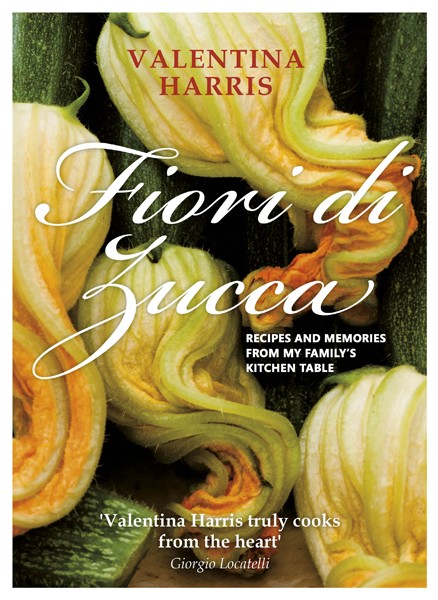
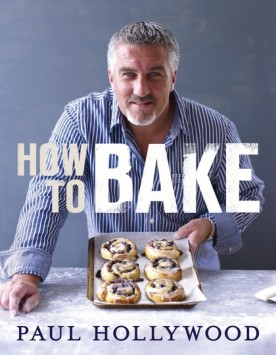
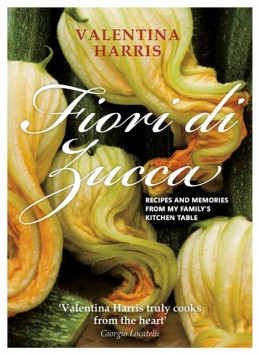
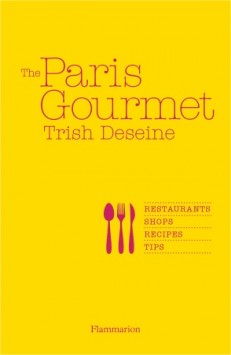
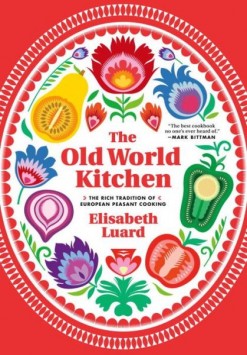
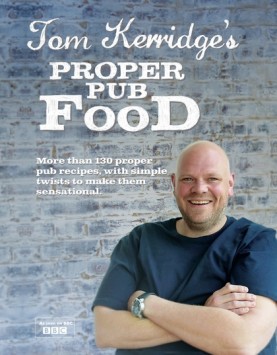
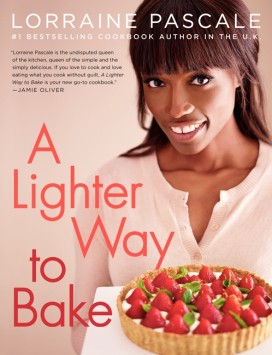
Leave a Reply